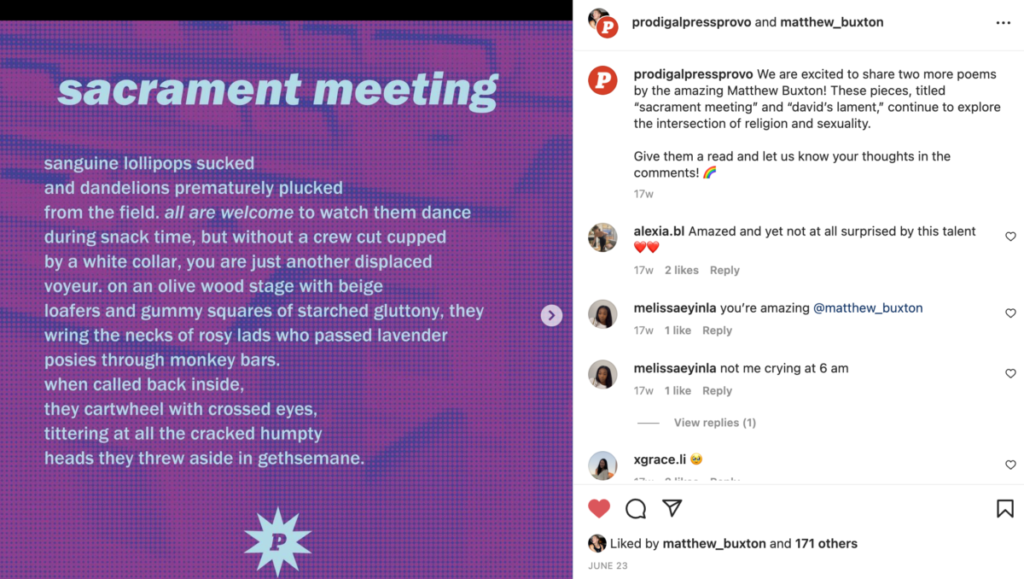https://poets.org/2021-vii/?fbclid=PAAaYop561EtwJiZc1zrhRR1re4mgo6-j8RM173Q6WhXXQktCanbBmPUbvDWo
I have chosen the poem “vii” by Matthew Buxton as the text for my close reading which I linked above. This text is meaningful to me because not only is it written by a friend of mine, but its religious imagery speaks to me as I myself identify as Christian while my friend identifies as Mormon. I think the discourse communities involve people who have grown up with strong religious beliefs, people who are exploring their sexuality, gay individuals, and religious individuals.
Because my poem is told from the perspective of a gay author, I intend to talk about my text in relation to the marginalization of gay communities in the real-world as well as the complexity of this in religious arenas. I also intend to talk about how my text relates to the Bible and its significance in Christianity.
The 2-3 similar texts I have disccoveredd through research are david’s lament and sacrament meeting, both by Matthew Buxton. David’s lament is a one stanza poem that mirrors the verse 2 Samuel 1:26, which is a verse from the Bible that has been proposed to be an example of same-sex attraction in the Bible. In Buxton’s david’s lament, Buxton laments his own first love drawing imagery of the natural world to show the way in which his first loves’ voice haunts him like echoes in a cave, and he cries for his first love in a ravenous way. Buxton claims his first love is “wonderful, passing the love of all”(Buxton, lines 14) which parallels to David’s love for Jonathan being “more wonderful than women” in 2 Samuel 1:26.


In “sacrament meeting” Buxton explores his identity as a Mormon boy during “snack time” (Buxton, lines 4). He highlights the way in which the “Crew cut cupped/ by a white collar” boys during snack time are crossed eyed and have lost their heads in gethsemane. He is saying that the individuals in snack time at the church have lost their heads and have been in a sense, brainwashed.
I think that my object intersects with this class because it shows intersectionality between both religion and homosexuality just as we have explored intersectionality in other texts such as Sula with race and gender. In the text I have chosen, I have questions regarding certain lines such as why did Buxton choose the word “lead” in “lead head” (Buxton, line 6). What did Buxton mean by “when I’m mad that he/doesn’t touch me anymore” (Buxton, line 5-6)?